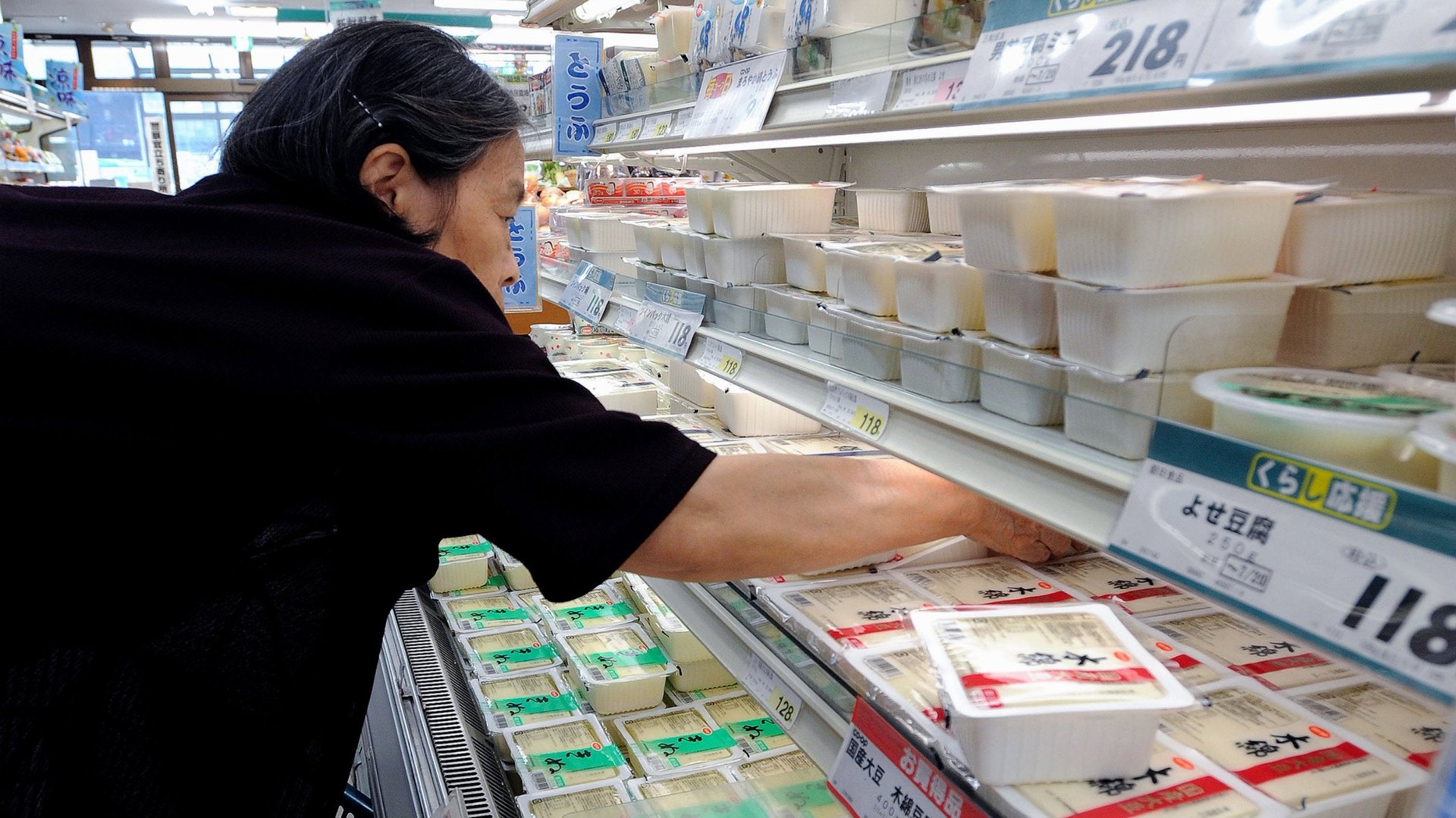Japanese tofu prices are going up 20% because of Abenomics
Japan’s tofu manufacturers are planning to jack up prices by 20% this autumn—the first markup in 15 years—as a response to the rising price of American soybean imports, caused in part by a stronger Japanese yen.


Japan’s tofu manufacturers are planning to jack up prices by 20% this autumn—the first markup in 15 years—as a response to the rising price of American soybean imports, caused in part by a stronger Japanese yen.
Prime Minister Shinzo Abe has pushed a series of reforms designed to rid the economy of deflation, but the policies have had harsh consequences for industries that must import dollar-denominated commodities like oil, natural gas, and soybeans.
Japan is the biggest per capita consumer of soy foods—not just in tofu but in soy sauce, miso, edamame, and the smelly fermented delicacy known as natto—with the average adult consuming 24.3 kilograms per year. The country is reliant on imports for about three-quarters of its supply, according to the US Department of Agriculture; that percentage rose even higher after the Fukushima nuclear disaster, which rendered 22% of domestic supply unusable (pdf, pg 2) because of radiation fears.
Yasuo Hachijin, head of an industry group in the Kinki region and president of Kyoto-based Global Protein Foods Inc., said the price of raw materials has climbed 20% over the last five years. He told the English-language Japan Times, that “the hike will not be enough to fill the gap and that the industry will have consider another one.”
The Japanese tofu industry’s woes have been exacerbated by drought conditions in the American Midwest, which resulted in six weeks of rising soy prices through Sept. 16—the longest run of rising prices since 2009. Prices eased slightly this week due to reports of much-needed rain—a relief to US farmers, if not necessarily to their clients in Japan’s tofu factories.